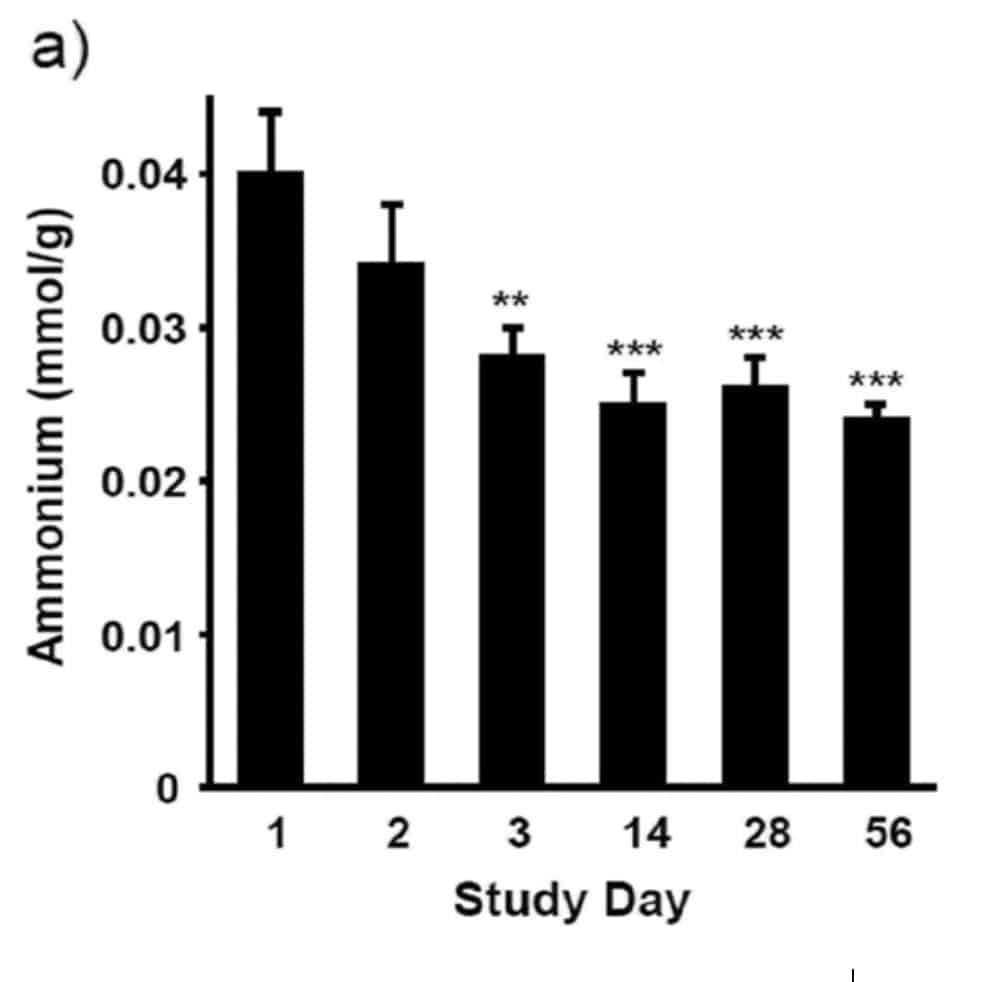Case Study
High-fiber Diet for Treating Chronic Diarrhea in Dogs
Metabolon helps identify functional metabolomic changes in the gut microbiome in dogs with chronic diarrhea fed a high-fiber diet.

Metabolon’s metabolomics platform helped identify metabolic changes that occurred when dogs with diarrhea were fed a high-fiber diet. These insights are critical in helping drive innovation towards more targeted, efficacious solutions for dogs with chronic diarrhea, improving the quality of life for dogs and their owners.

Metabolon’s metabolomics platform helped identify metabolic changes that occurred when dogs with diarrhea were fed a high-fiber diet. These insights are critical in helping drive innovation towards more targeted, efficacious solutions for dogs with chronic diarrhea, improving the quality of life for dogs and their owners.

This study1 utilized metabolomics to identify functional metabolomic changes in response to a nutritional intervention in dogs with chronic large bowel diarrhea.
Chronic large bowel diarrhea is common in dogs, significantly impacting the quality of life for both dog and owner and representing one of the top medical reasons dogs visit primary-care veterinary clinics.2 Nutritional interventions are considered preferred treatments since most cases of chronic diarrhea occur concurrently with intestinal dysbiosis or an imbalance in the gut microbiota. Specific dietary fiber blends are often utilized as they selectively nourish beneficial colonic bacteria and provide vital substrates necessary to restore healthy intestinal microbial growth, and, ultimately, reduce clinical signs.
Previous studies3-5 demonstrated this novel fiber blend shifted the gut microbiome of dogs with chronic diarrhea towards a healthier state. Specifically, the fiber blend improved stool quality, increased fecal saccharolytic products, and increased fecal antioxidant and anti-inflammatory metabolites. Additionally, the microbiome diversity in treated dogs with chronic enteritis/gastroenteritis became more like that of healthy dogs. A companion analysis of the current study reported rapidly improved stool consistency, resolution of clinical signs, and improved stooling behaviors and quality of life in dogs with chronic large bowel diarrhea.1, 5
This recent publication helps characterize the metabolites and biochemical pathways underlying treatment efficacy in dogs with chronic large bowel diarrhea. When study dogs were fed the novel fiber blend, gut metabolism shifted from predominantly proteolytic to saccharolytic fermentative state, a shift considered beneficial for gut health. Increases in bioavailable plant-derived indole and phenolics as well as modulation of gut inflammation were also reported. Collectively, the functional metabolic changes are indicative of a shift to improved gut function and a possible pathophysiological mechanism related to improved clinical signs of diarrhea.
The Challenge
The efficacy of nutritional interventions in dogs with chronic diarrhea is well documented, with many studies demonstrating beneficial shifts in the gut microbiome composition. Quantifying fecal firmness, pH, moisture, and ash content allows evaluation of stool consistency and characteristics. Fecal microbiome analysis captures a snapshot of the gut microbiome, provides insight to the amount and type of microbes present. As valuable as these methods are, however, they don’t tease apart the functional metabolic changes that occur because of the nutritional intervention.
Metabolon Insight
By elucidating the metabolomic changes or signature differences, our Global Discovery Panel helped drive innovation of more targeted, efficacious solutions for dogs with chronic large bowel diarrhea. Metabolon’s unmatched chemical library and biological interpretation expertise made it possible to identify, track, and map metabolites across 70 major biochemical pathways providing the most comprehensive coverage of the gut metabolome.
The statistical analysis, interpretation, and interactive visualization tools allow Metabolon to deliver the most comprehensive and mechanistic view of the underlying biology of your subject with a complete, accurate, and reliable interpretation that delivers knowledge, not just data.
The Solution
The Metabolon Discovery Global Platform used untargeted metabolomics profiling on fecal and serum study samples to help characterize the specific microbiome and biochemical contributions that led to improvements in clinical signs of diarrhea following treatment with the novel fiber blend.

Figure 1. Fecal ammonia concentrations, as an indicator of the impact of dietary intervention on fermentative metabolism.
The Outcome
While improved clinical signs and compositional changes to the fecal microbiome were notable, Metabolon’s metabolomic analysis also allowed for the identification of complex fecal and circulating biochemical differences between treatment groups which could be used as biomarkers of treatment.
Metabolomic analysis revealed that when dogs with chronic diarrhea were fed the novel fiber blend, gut metabolism shifted from predominantly proteolytic to saccharolytic fermentative state, indicating that the high-fiber intervention altered the protein-derived substrate availability for the colonic microbiota, resulting in a decreased catabolic signature. This shift is generally considered to be beneficial for gut health. Increases in bioavailable plant-derived indole and phenolics as well as modulation of gut inflammation (via endocannabinoid, polyunsaturated fatty acid, and sphingolipid pathways), were also reported. Collectively, the functional metabolic changes are indicative of a shift to improved gut function and a possible pathophysiological mechanism related to improved clinical signs of diarrhea.
References
1. Fritsch DA, Jackson MI, Wernimont SM, Feld GK, MacLeay JM, Brejda JJ, et al. Microbiome function underpins the efficacy of a fiber-supplemented dietary intervention in dogs with chronic large bowel diarrhea. BMC Vet Res. 2022;18(1):245.
2. Kim E, Choe C, Yoo JG, Oh SI, Jung Y, Cho A, et al. Major medical causes by breed and life stage for dogs presented at veterinary clinics in the Republic of Korea: a survey of electronic medical records. PeerJ. 2018;6:e5161.
3. Jackson MI, Jewell DE. Balance of saccharolysis and proteolysis underpins improvements in stool quality induced by adding a fiber bundle containing bound polyphenols to either hydrolyzed meat or grain-rich foods. Gut Microbes. 2019;10(3):298-320.
4. Wernimont SM, Paetau-Robinson I, Jackson MI, Gross KL. Bacterial Metabolism of Polyphenol-rich Fibers in a True Carnivore, Felis catus. The FASEB Journal. 2019;33(S1):723.3-.3.
5. Fritsch DA, Wernimont SM, Jackson MI, MacLeay JM, Gross KL. A prospective multicenter study of the efficacy of a fiber-supplemented dietary intervention in dogs with chronic large bowel diarrhea. BMC Vet Res. 2022;18(1):244.






